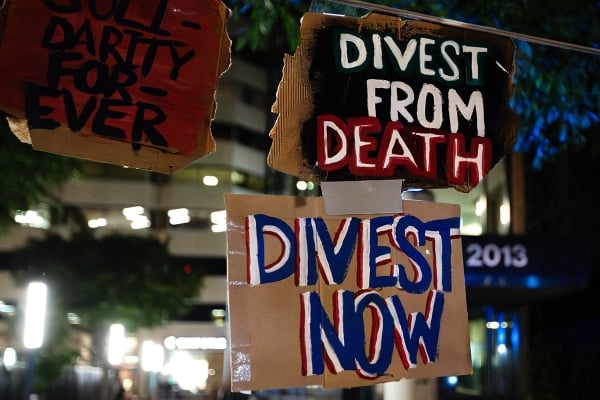In recent years, there has been a growing movement on college campuses to urge universities to divest from companies that do business with or in Israel. This movement, known as the BDS (Boycott, Divestment, and Sanctions) movement, has been gaining traction among students who are critical of Israel’s policies towards Palestinians.
However, despite the vocal demands of some students, efforts to persuade universities to divest from Israel have largely fallen flat. Many universities have rejected calls for divestment, citing concerns about academic freedom, the importance of maintaining relationships with Israeli institutions, and the potential financial implications of divesting from certain companies.
One of the most high-profile examples of this was at Harvard University in 2018, where the student government voted to support divestment from companies that do business with Israel. However, the university’s administration quickly made it clear that they had no intention of following through on this demand, stating that they would not be divesting from Israel.
Similarly, at other universities across the country, student efforts to push for divestment from Israel have met with resistance from administrators and governing bodies. In many cases, universities have chosen to maintain their investments in Israeli companies and institutions, arguing that divestment is not an effective or appropriate way to address the complex political issues at play.
Critics of the BDS movement argue that efforts to pressure universities to divest from Israel are misguided and counterproductive. They argue that divesting from Israel would not only be financially detrimental to universities, but that it could also limit academic collaboration and exchange between Israeli and American institutions.
Despite these challenges, the BDS movement continues to have a presence on college campuses, with students organizing protests, petitions, and other actions to advocate for divestment from Israel. However, it remains to be seen whether these efforts will ultimately be successful in convincing universities to change their investment policies.
In conclusion, while students’ demands for divestment from Israel have sparked debate and raised awareness about the Israeli-Palestinian conflict, they have largely failed to result in concrete changes in university investment policies. The complex nature of the issue, combined with concerns about academic freedom and financial implications, have made it difficult for students to sway university administrators on this issue.



